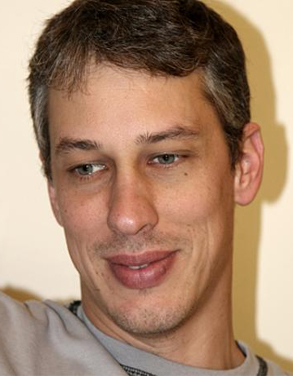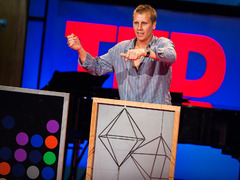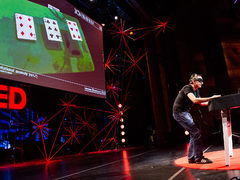 TED Talks are available in 97 languages, from Albanian to Vietnamese, thanks to the tireless work of our translators. So far, more than 8,800 volunteers have created the upwards of 34,000 translated talks. To celebrate this huge accomplishment, every week the TED Blog will be bringing you a Q&A with one of our most prolific translators. Today, meet Ido Dekkers.
TED Talks are available in 97 languages, from Albanian to Vietnamese, thanks to the tireless work of our translators. So far, more than 8,800 volunteers have created the upwards of 34,000 translated talks. To celebrate this huge accomplishment, every week the TED Blog will be bringing you a Q&A with one of our most prolific translators. Today, meet Ido Dekkers.
Where do you live? What do you do?
I live in a small village in Israel, and I’m a front end web developer.
What drew you to TED?
I’ve known TED since it only had a few dozen talks, and I was always drawn to the topics and the quality.
What was the first talk you translated and how did you pick it?
 Beau Lotto: Optical illusions show how we see
The first talk I translated was Beau Lotto’s “Optical illusions show how we see,” I picked it since my then 9-year-old daughter didn’t know English well enough and I was acting as an online translator. Then, I saw the translate button. Ever since then, I’ve been hooked.
Beau Lotto: Optical illusions show how we see
The first talk I translated was Beau Lotto’s “Optical illusions show how we see,” I picked it since my then 9-year-old daughter didn’t know English well enough and I was acting as an online translator. Then, I saw the translate button. Ever since then, I’ve been hooked.
What have been your favorite talks to translate? Why?
My favorite talk to translate was … actually all of Marco Tempest’s talks. They are so riveting.
 Marco Tempest: A cyber-magic card trick like no other
Which talk was the most difficult for you to translate and why?
Marco Tempest: A cyber-magic card trick like no other
Which talk was the most difficult for you to translate and why?
The hardest talk was the TED-Ed lesson “Making sense of spelling” by Gina Cooke. It talks about spelling and grammar in English, and it’s very hard to pass on to other languages.
What’s a phrase in your language that you wish would catch on globally?
I think the most known phrase is “eihiye beseder” which translates to “everything will be OK.” People use it here all the time. We have so many worries, we try at least to take everything easy.
Comments (1)
Pingback: Meet the translator: Hugo Wagner, who translates talks into French | TokNok Multi Social Blogging Solutions